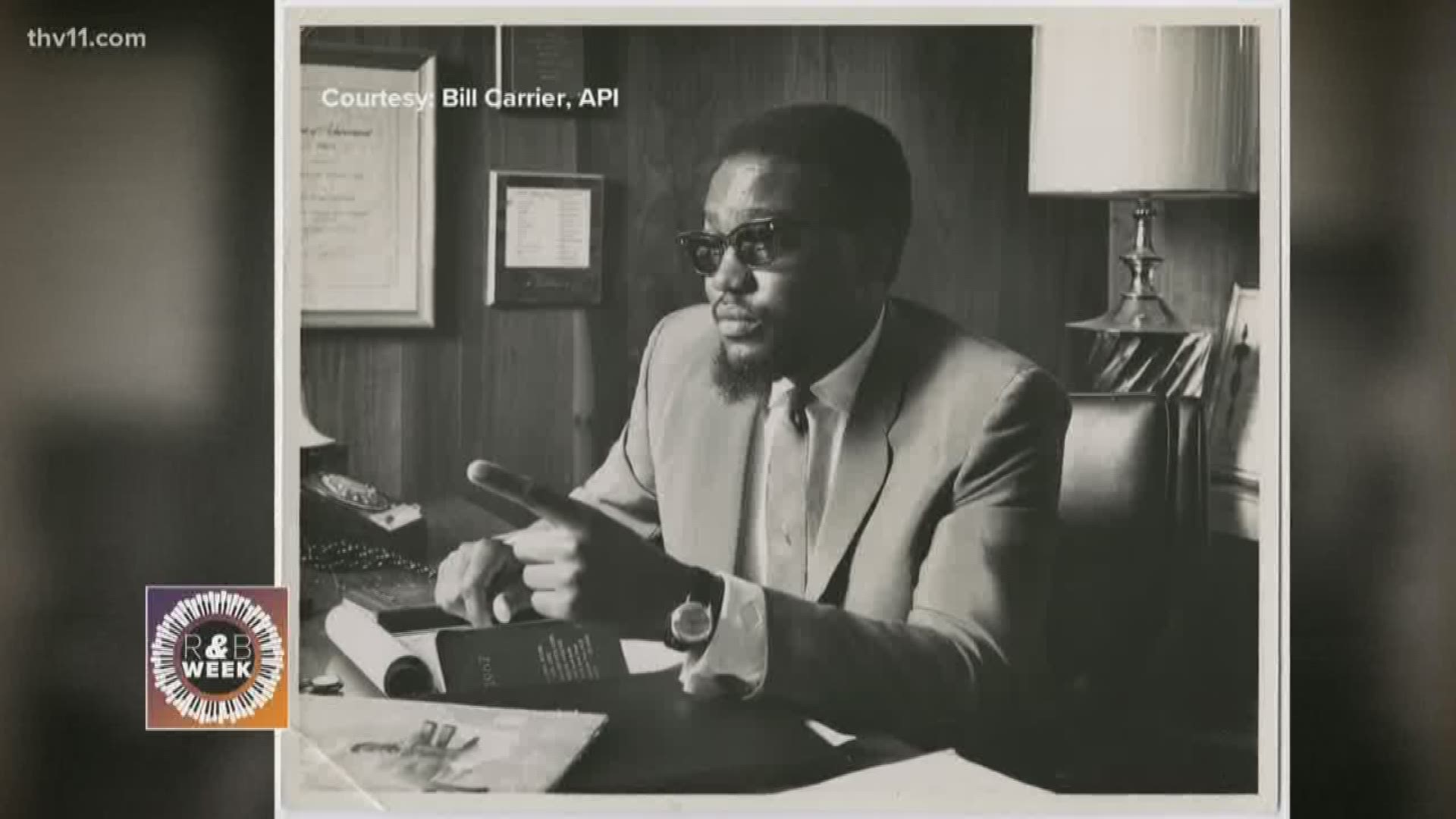LITTLE ROCK, Ark. — Otis Redding, Isaac Hayes, the Staple Singers and Prince. All legends with ties to one Arkansas-native record producer Al Bell.
But before his big break in the music industry, Bell was just the student council president at Jones High School in North Little Rock.
“The girls who got me elected and got me to run, my constituents, came up to me and asked me ask the principal if we could record hops or discos after the basketball and football games,” Bell said.
He admitted it was a request he didn’t think he could pull off.
“I don't know if I can do that,” Bell remembered. "They said, 'Listen, we got you elected president of student council.’”
So, he asked and to his surprise the principal said yes.
The school even provided the equipment, but he was still missing a crucial component.
“I got it approved but how do we get records,” he asked. “They said, ‘We'll go back and ask our classmates’”
The students loved the idea and Bell created a system to keep up with his student body's record collection.
Once the hops got off the ground, he turned his attention to the music.
“I started watching them dance. I'd ask, 'What is about this song that you like? Why do you dance to it? What is it about the lyrics?' And they would start telling me,” Bell said. “That's where I really learned how to understand music, understand how music affected people.”
He eventually came up with idea for a show between Jones and Dunbar High School and reached out to KOKY, Arkansas's first radio station geared toward a black audience.
The station helped judge and promote the contest, which was emceed by Bell.
And a week later, he had a meeting with the general manager.
“I walked in and he said, ‘You have an uncanny gift to gab,’” Bell said. “He said, ‘We're going to make a disc jockey out of you.’”
He gave Bell a job, a mission and advice that he turned to throughout his career.
“He said, 'Go around to the restaurants with juke boxes, so the music you hear blacks playing in there, that's the music they like to hear because they have to pay for it,'” he remembered. “'That’s the music I want you to play.'”
The high school student quickly became a popular host and DJ who was proud to play the music listeners loved.
He spent two years on the air in Little Rock and another two in Memphis before wrapping up his radio career in Washington DC, where he found himself playing music for a presidential audience.
“One of my listeners, I’m pleased to say, was Lady Bird Johnson,” Bell bragged. “One day she called me on the phone. I was proud of that like a 16-year-old kid with my new bicycle. She called and asked me to play Gee Whiz by Carla Thomas.”
His time in radio would set the course for the rest of his career and things were moving fast, something he credits to people.
“I kept up with people and that kept me keeping up because if you look at people they’re moving. Not just one set of people, people in general. And it moved and moved.”
But in the end, it's all about the music.
“I didn't appreciate it until later, but music is art,” Bell said. “The industry wasn't treating it that way, but music was and still is art.”
We have created a Spotify list of some of the best R&B songs that have a connection to Arkansas. Click here to listen.

